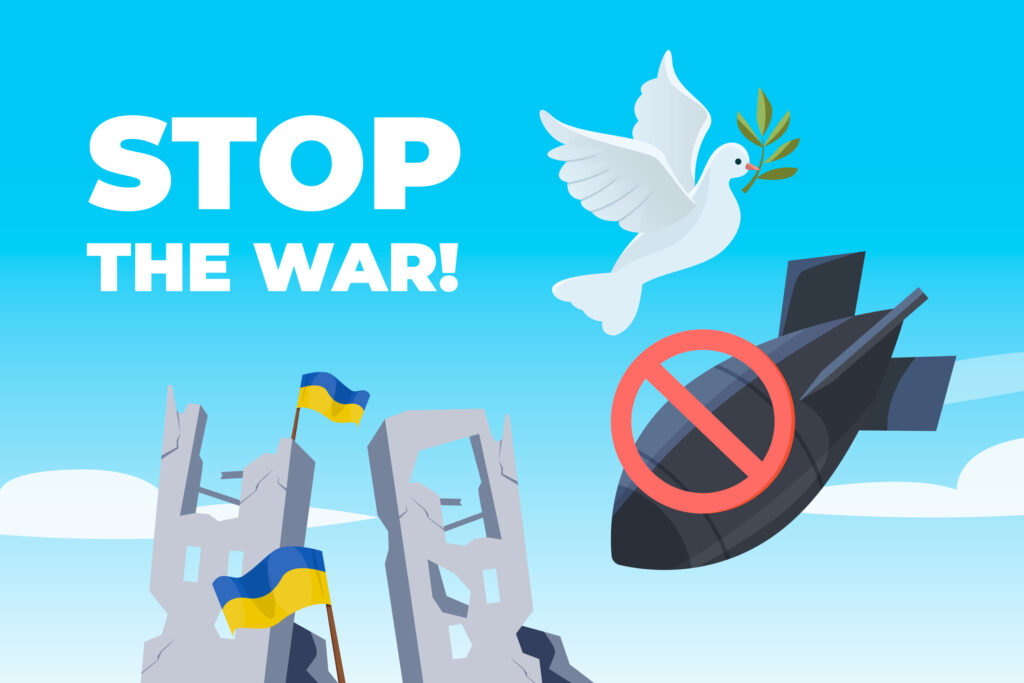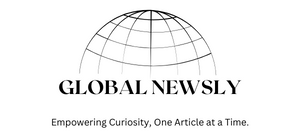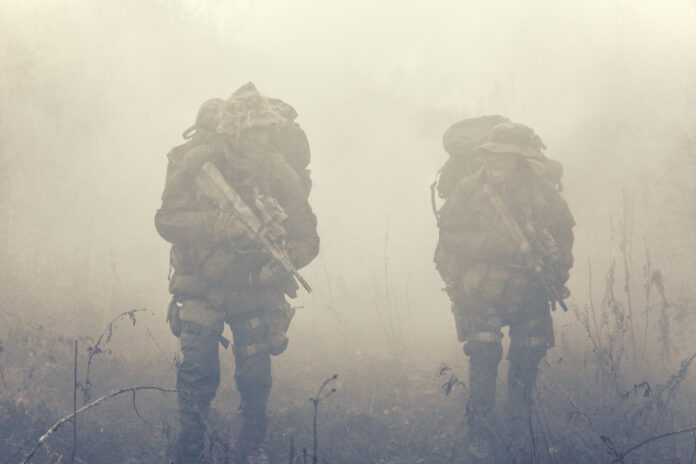We can’t give a right or wrong answer to the question will there be a Third World War. However, we can guide you trough the current global stage and what you can do to prepare for the possibility of the Third World War. The initiation of aerial operations by the United States and the United Kingdom against Houthi positions in Yemen has heightened apprehensions regarding the potential escalation of these engagements into a broader regional conflict.
President Joe Biden has committed to persistent strikes on the armaments of the insurgents until their maritime assaults in the Red Sea cease. However, there have been reports that a cautious approach in the administration’s response to the Houthis is aiming to avoid provoking a widespread conflict in the region, particularly considering the group’s affiliations with Tehran.
This development occurs in the context of escalating tensions marked by reciprocal missile strikes in the border areas of Iran and Pakistan. According to Al Jazeera, this has led to a rapid and significant decline in diplomatic relations between Islamabad and Tehran, characterized by the recall of ambassadors, the severance of official relations, and an intensification of diplomatic discourse.
These events have contributed to global apprehensions, particularly given the concerns that Israel’s ongoing offensives in Gaza may incite a broader regional conflict.
Analyzing the Global Stage
Analyzing the global stage in the context of a hypothetical Third World War necessitates a cautious and nuanced approach, given the gravity and sensitivity of the subject. The mere contemplation of such a scenario underscores the intricate web of international relations and the fragile nature of global peace.
In this hypothetical analysis, it’s crucial to consider the multifaceted dimensions of diplomacy, economic interdependence, and technological advancements that characterize our interconnected world.
If set against the backdrop of a Third World War, the global stage would likely be marked by unprecedented geopolitical shifts. Considering the complex dynamics of power, resource allocation, and ideological divides, nations would be compelled to reevaluate their alliances and strategies.
The role of international organizations and treaties designed to prevent such catastrophic events would come under intense scrutiny, challenging the very foundations of the international order established post-World War II.
Moreover, the impact of a Third World War in today’s era cannot be overstated, especially considering the technological prowess of nations and the sophistication of modern weaponry.
The advent of cyber warfare, artificial intelligence, and other advanced technologies adds a layer of complexity, making the potential consequences of such a conflict devastatingly unpredictable. It’s a stark reminder of the importance of diplomacy, international cooperation, and the relentless pursuit of peaceful resolutions to conflicts.
Russian Conflicts
The incursion of Russian forces into Ukraine, initiated in February 2022, has been characterized as the most perilous event Europe has witnessed since the culmination of the Second World War.
Both conflicting parties have endured substantial casualties within their military ranks. Russian strategies have involved extensive missile assaults on numerous Ukrainian cities. Concurrently, Ukraine has vigorously engaged in reclaiming its lost territories and sustaining its counteroffensive efforts despite acknowledging the lack of anticipated significant advancements, as recognized by its leadership in Kyiv.
Amidst signs of waning enthusiasm for the conflict among European leaders and growing hesitance in Washington to continue indefinite financial backing, President Vladimir Putin might perceive the ongoing strife in Gaza as a strategic moment to consolidate his position.
Further compounding global apprehensions, last autumn witnessed Russia’s withdrawal from the international accord prohibiting nuclear weapons tests.
Possessing the most extensive nuclear arsenal globally, this move has elicited concerns among some Western arms control specialists. These experts speculate that Putin might be contemplating a nuclear test to instill intimidation and fear in the context of the Ukraine conflict, as reported by Reuters.
In the lead-up to the forthcoming elections in March, Putin has escalated the intensity of bombardments on Ukrainian urban centers. Asserting a resolute stance in his New Year’s Eve address, he declared Russia’s unwavering resolve not to capitulate.
China’s Conflicts
Historically, the escalating dynamics between China and the United States have been perceived as the primary catalyst for global geopolitical instability. A modest détente culminated in a significant encounter between President Xi Jinping and President Joe Biden in November, intending to revitalize communication channels and forge a preliminary accord on pivotal issues such as trade, technology, and global security.
Despite these efforts, the Financial Times’s Swamp Notes newsletter indicates that the fundamental disagreements between the two nations remain unresolved and challenging.
Mirroring Russia’s territorial claims over Ukraine, China perceives Taiwan as an inseparable segment of its sovereign territory and has adopted a more assertive posture towards the island in recent years. Concurrently, under President Joe Biden’s administration, the United States has intensified its support for Taiwan, encompassing financial, military, and diplomatic dimensions, to uphold the island’s sovereignty.
President Xi underscored in his New Year address the inevitable reunification of China and Taiwan, augmenting military pressures on the island in anticipation of its pivotal elections on 13 January, as reported by the BBC.
In response to the electoral triumph of Taiwan’s ruling Democratic Progressive Party (DPP), which Beijing vehemently opposes as separatist elements, The Guardian notes that the initial reaction from Beijing has been comparatively restrained. However, the prospect of a more pronounced response looms with the impending inauguration of President-elect Lai Ching-te in May.
Beyond the profound humanitarian implications, a military confrontation between the world’s foremost economic powers, even if waged through conventional means, would precipitate a disintegration of global supply chains, a downturn in market confidence, and a plummet in asset values, as articulated by The Guardian’s economics editor Larry Elliott. The economic repercussions would be dire, potentially culminating in a crisis comparable to a second Great Depression.
Middle East’s conflicts
For an extended period, Israel and Iran have been covertly engaged in confrontations across various domains, including terrestrial, maritime, and aerial, as articulated by Foreign Affairs. The ongoing conflict in Gaza is perturbing their already intricate strategic balance. Prolongation of this strife is anticipated to diminish the propensity for restraint and amplify the likelihood of a confrontation between Israel and Iran.
In the wake of the Gaza conflict’s commencement, assaults, notably maritime in the Red Sea, have been executed by proxies of Iran, specifically Hezbollah in Lebanon and the Houthi rebels in Yemen.
Recently, Lebanon’s Prime Minister alleged that Israel is endeavoring to entangle the nation in a wider regional conflict. This allegation followed the elimination of Saleh al-Arouri, the deputy political chief of Hamas, in a drone strike in Beirut.
As reported by news reporters, the intensification of these hostilities since the year’s onset – coupled with the attendant perils for the future – epitomizes the amalgamation of multiple crises in the Middle East.
The current landscape, characterized by ten distinct conflicts involving a variety of adversaries, divergent issues, and differing objectives, is increasingly interlinked. Despite recent analyses forecasting an expanded conflict, the trajectory toward convergence has been discernible for some time.
The Role of Information and Misinformation When Thinking of Will There be a Third World War
Information acts as a thread and a needle, weaving together narratives and shaping public perception and policy. The advent of the digital age has exponentially multiplied the velocity and volume of information exchange, significantly impacting the dynamics of international diplomacy and public discourse.
However, alongside the undeniable benefits of this information revolution comes the pernicious spread of misinformation—a phenomenon that can distort, disrupt, and escalate tensions with alarming rapidity.
The role of information in shaping public opinion and policy cannot be overstated. Accurate, timely, and context-rich information about the Third World War and many other things, can enlighten discussions, guide diplomatic efforts, and foster understanding across borders that’s why we at Global Newsly want to report the truth behing the scene.
It is the lifeblood of healthy democracies, where an informed citizenry is empowered to make decisions and hold leaders accountable of their decisions that could lead to Third World War.
In contrast, misinformation muddies the waters of discourse, sowing confusion and mistrust. It can be weaponized to engineer consent or dissent, manipulate narratives, and obscure the truth, often leading to polarization or, in extreme cases, conflict.
The proliferation of social media platforms has democratized information dissemination, allowing anyone to broadcast their narrative to a global audience. This democratization, while empowering, also presents challenges. Social media algorithms often prioritize content that elicits strong emotional reactions, which can lead to the amplification of sensationalist or misleading information, especially regarding Third World War.
The echo chamber effect, where users are exposed predominantly to viewpoints similar to their own, further entrenches divisions and makes the collective task of discerning truth from falsehood increasingly arduous.
Combatting misinformation requires a multifaceted approach. At the individual level, media literacy is paramount. This entails developing the skills to critically evaluate the source, context, and content of information. It also involves a commitment to seeking out diverse perspectives and engaging in reflective thought, resisting the allure of narratives that merely affirm preexisting beliefs.
At the institutional level, media organizations, technology companies, and governments have roles to play in ensuring the integrity of the information ecosystem. This can range from fact-checking and content moderation to fostering transparency in media ownership and supporting public interest journalism.
In global tensions, the stakes of information and misinformation are immensely high. Misinformation can rapidly escalate misunderstandings into conflicts, turning what could be a space for dialogue into a battleground of narratives. Conversely, accurate and empathetic communication can bridge divides, humanize ‘the other,’ and lay the groundwork for conflict resolution and peacebuilding.
Personal and Community Preparedness
Personal and community preparedness can enhance resilience and foster a sense of security. This concept extends beyond the anticipation of conflict to encompass various potential emergencies, including natural disasters and other crises. Here are eight critical considerations for personal and community preparedness:
- Building a Basic Emergency Kit
Every household should have an emergency kit with essential items such as non-perishable food, water, a first-aid kit, a flashlight, batteries, and important documents. The kit should be tailored to meet the specific needs of your household, including any necessary medications, pet supplies, or childcare items. You should not miss a thing when it comes to the global Third World War.
- Learning First Aid and CPR
Equipping yourself with basic first aid and CPR skills can be life-saving in emergencies. Local community centers or health organizations often offer training sessions. These skills are not only valuable in times of crisis but are also beneficial in everyday life.
- Understanding Local Emergency Plans
Familiarize yourself with the emergency plans of your local community. Know the evacuation routes, emergency shelter locations, and the local authorities’ guidance on responding to the Third World War. Staying informed and following local news and alerts is also essential.
- Strengthening Community Connections
In times of crisis, a strong community can make a significant difference. Building relationships with neighbors, participating in local community groups, and understanding the resources available in your community can enhance collective resilience. Consider joining or organizing community preparedness programs.
- Promoting Emergency Preparedness Education
Encourage and participate in educational programs within your community that focus on emergency preparedness. Schools, community centers, and local organizations can play a pivotal role in spreading awareness and teaching preparedness skills for the Third World War.
- Volunteering with Local Emergency Services
Volunteering with local emergency response teams or organizations can provide valuable assistance to your community and give you hands-on experience in dealing with emergencies. This can include training with community emergency response teams, local fire departments, or medical reserve corps.
- Practicing Emergency Drills
Regularly practicing what to do with your family and community in an emergency can ensure that everyone knows how to respond effectively. This can include fire drills, earthquake drills, or other relevant emergency response exercises.
- Staying Informed and Adaptive
As previously mentioned, staying informed about global and local issues is vital. Adapting to new information and altering your preparedness plans accordingly ensures that you remain resilient in the face of evolving challenges.
Promoting Peace and Understanding
Pursuing peace and understanding is a beacon of hope and unity in a world often divided by differences. Promoting peace is not just the work of diplomats and world leaders; it’s a responsibility that rests on the shoulders of every individual in every community. It starts with fostering understanding, empathy, and dialogue in our everyday interactions.
Understanding is the foundation of peace. It begins with education – learning about other cultures, histories, and perspectives. It’s about challenging our preconceptions and being open to new ideas. Schools and educational institutions, as do families, communities, and each individual, play a crucial role in this regard. Reading, traveling, and conversing with people from diverse backgrounds broaden our horizons and enrich our understanding of the world.

Empathy is the bridge that connects understanding to peace. It’s the ability to put ourselves in someone else’s shoes and see the world from their perspective. This doesn’t mean abandoning our own values or convictions but recognizing every individual’s inherent dignity and worth. Empathy in action can look like community service, supporting humanitarian efforts, or simply lending a listening ear to someone in need.
Dialogue is the tool we use to build that bridge. It’s about more than just talking; it’s about communicating with respect, listening actively, and seeking common ground. It involves not only speaking but also listening – not to respond or refute but to understand and empathize with others in the case of Third World War. In our interconnected world, opportunities for dialogue span from our local community meetings to global platforms on social media.
However, promoting peace goes beyond understanding, empathy, and dialogue. It’s about taking concrete actions to make our communities more inclusive and just. It involves supporting policies and initiatives that address inequality, injustice, and poverty. It’s about standing in solidarity with those who are marginalized and oppressed and working towards solutions that uplift everyone.
We also recognize the power of art, music, and literature in promoting peace and understanding. These universal languages can transcend boundaries, express shared human emotions, and foster a sense of common humanity. They remind us that, despite our differences, we all share the same dreams, fears, and hopes.
As individuals, our actions may seem like drops in the vast ocean of global challenges. But each drop creates ripples; together, they can form waves of change. By promoting peace and understanding in our daily lives, we contribute to a culture of peace that can ripple outwards from our local communities to the global stage.




